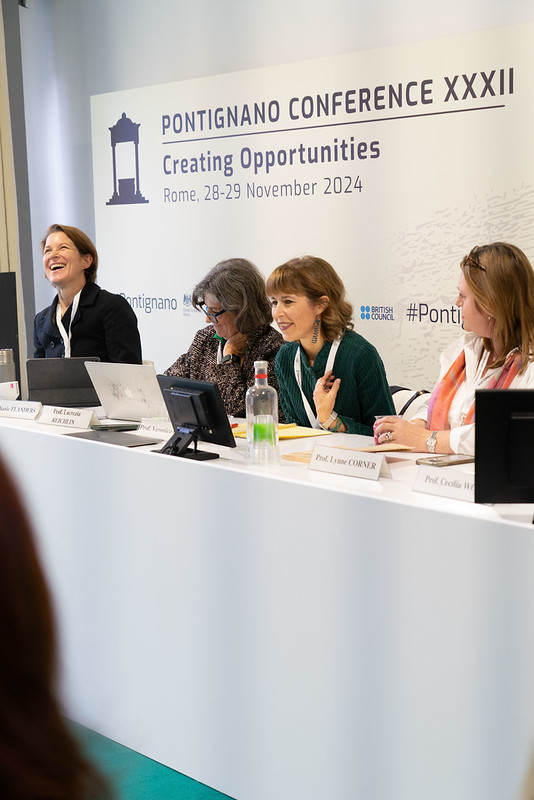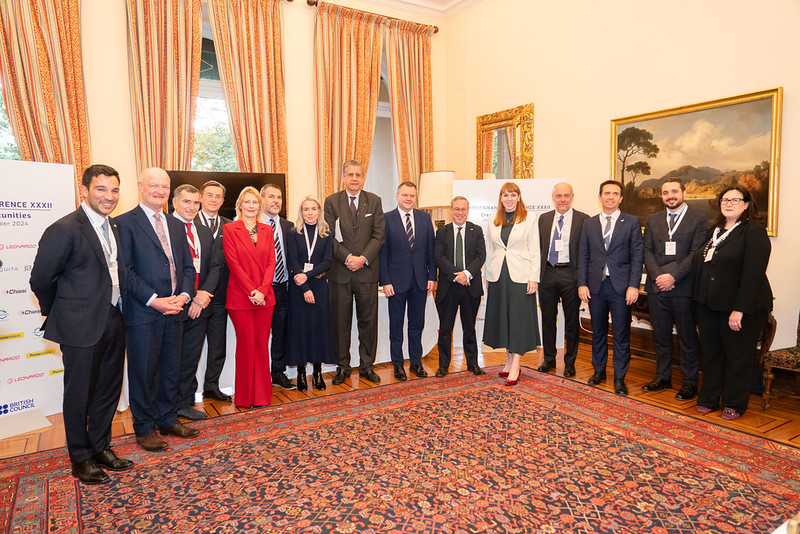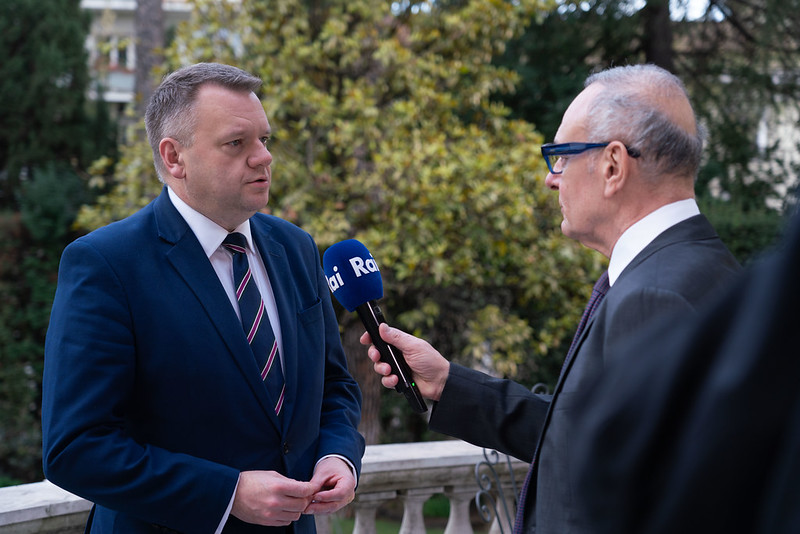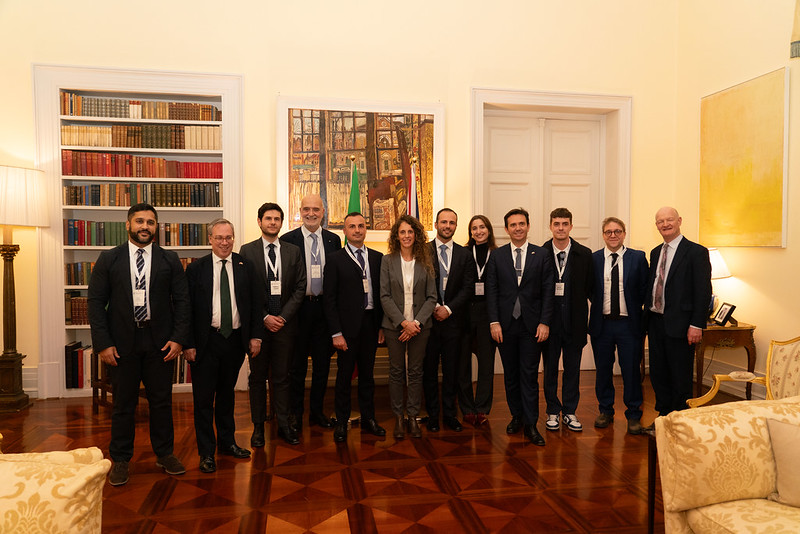The Pontignano Conference XXXIII (October 2025): Growth and Resilience
This year’s Pontignano Conference is the 33rd edition and we are returning to its traditional home in Siena.
2025 has already been a big year for the UK – Italy relationship, with Prime Minister Meloni visiting London on 2 March and Their Majesties The King and Queen’s State Visit in April reinforcing the strength and depth of our bilateral relationship. We plan to build on some of its key themes at Pontignano, especially around defence cooperation, clean energy and cultural collaboration. We are continuing to deliver the commitments of our 2023 Memorandum of Understanding on Bilateral Cooperation and our Prime Ministers’ Joint Statement in September 2024, which included confirmation of £485 million of investment into UK defence, clean growth and innovation by two major Italian companies: Leonardo and Marcegaglia. This year we are prioritising our support for further UK-Italy investment and business collaboration, including planning for our next CEO Forum. We are building on the launch of the UK-Italy Science and Technology Dialogue in June 2025, and working towards the signing of a Science and Technology MoU.


Shortly after this year’s Pontignano Conference, the UK Carrier Strike Group and Italian Armed Forces are due once again to demonstrate the closeness of the bilateral relationship through a major joint exercise. Later this year, we hope to hold a Foreign and Defence Ministers meeting and Pontignano will help to pave the way for that.
In light of both of our countries’ current priorities and the geopolitical climate we face, we have chosen this year to focus on Growth and Resilience. We will hold a plenary session looking specifically at how the UK and Italy, as two G7 countries in Europe, can achieve economic growth while also increasing security and resilience. We will consider industrial policy as, by the time we meet in Pontignano in October, both the UK and Italy will have published our renewed strategies (see The UK’s Modern Industrial Strategy 2025), and look at how we are responding to the need to enhance economic security and to increase defence spending amid a range of growing threats.
We plan to maintain our traditional Pontignano format, focusing on workshop discussions with experts to consider:
Building on the UK-EU Security and Defence Partnership: How can the UK and Italy support further Defence Industrial integration, and how can deepening this integration respond to the war in Ukraine, and support resilience against hybrid threats, disinformation, cyber-attacks and leverage Emerging and Developing Technologies (e.g. quantum and AI)? This discussion comes as the UK explores launching negotiations with the EU on a potential SAFE bilateral agreement and against a backdrop of growing investment in defence.
Bridges and Hubs: Energy Security and Science and Technology Cooperation: How can Italy and the UK deepen cooperation on energy security, collaborate on new energy technologies, work together on sustainable advanced nuclear and fusion energy, and address shared challenges – including power reliability, critical minerals, and resilient clean energy supply chains? Scientific cooperation is central to the Mattei Plan; how can we expand efforts to build skills, transfer technology, and support innovation in African low-carbon sectors, co-developing innovative ecosystems to foster economic growth and tech transfer? This session will build on the recently launched UK-Italy Science and Technology Dialogue, and the ‘Clean Power for Growth’ roundtable held during the 2025 State Visit, as well as focusing on Italy’s Mattei Plan.


Financial Services: In its latest Industrial Strategy, the UK has set itself the ambition to be “the world’s most innovative full-service financial centre by 2035″. As both the UK and Italy navigate complex economic imbalances, climate imperatives, and evolving global trade dynamics, can the financial services sector serve as a lever for broader economic resilience? This session will examine how financial innovation – through fintech, joint regulatory sandboxes, digital finance, pensions investment and green investment tools (like ESG tools) – can align with fiscal policy goals and support comparative growth. What lessons can be drawn from each country’s approach to reform and innovation?
Creative Industries: What insights, policies and strategies can the Creative Industries in the UK and Italy share that support decent work for young people, whilst driving sustainable, inclusive growth, creating more resilient regional communities and helping to forge new bilateral opportunities, including through digital innovation? This discussion comes following the EU Commission’s presentation of the Competitiveness Compass in January 2025 and the publication of the UK’s Industrial Strategy in June 2025.

